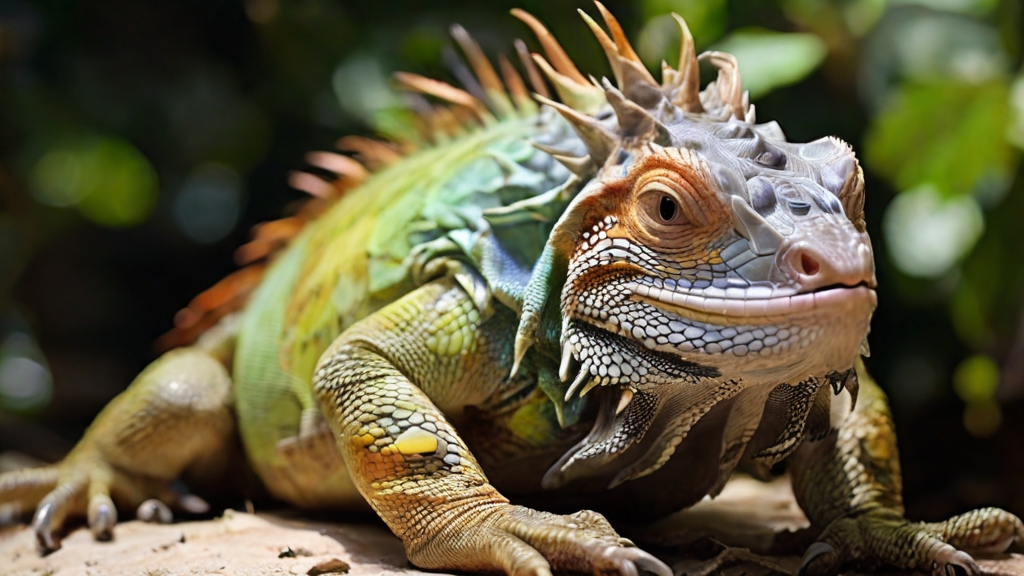Iguanas are fascinating reptiles known for their unique dietary needs. As a responsible iguana owner, it’s crucial to provide a well-balanced diet to ensure the health and vitality of these creatures.
In this article, we will explore the question, “Can iguanas eat grapes?” We’ll delve into the nutritional value of grapes for iguanas, potential risks and concerns, and suggest other safe and healthy food options for your scaly companion.
Introduction
Iguanas, commonly found in tropical regions, have specific dietary requirements to support their growth and well-being.
While their diet mainly consists of leafy greens and vegetables, iguanas are curious creatures and may show interest in other food items, including fruits like grapes.
However, it’s crucial to understand the implications of introducing grapes into their diet to make informed decisions for their health.
Can Iguanas Eat Grapes?
Yes, iguanas can eat grapes, but it’s important to feed them in moderation and with caution. Grapes are a source of natural sugars and water, making them a tempting treat for iguanas.
However, it’s essential to note that grapes should never become a significant part of their diet. Feeding large quantities of grapes to iguanas can lead to nutritional imbalances and potential health issues.
Nutritional Value of Grapes for Iguanas
Grapes contain essential nutrients such as vitamin C, vitamin K, and antioxidants, which can be beneficial for iguanas in small amounts.
These nutrients can contribute to their overall well-being. However, iguanas have specific dietary requirements, and their bodies are not adapted to process high amounts of sugars found in fruits like grapes.
Potential Risks and Concerns
While grapes have some nutritional benefits, there are potential risks and concerns associated with feeding them to iguanas.
One major concern is the high sugar content in grapes, which can cause digestive issues, including diarrhea and upset stomachs, if consumed excessively.
Additionally, the high water content in grapes can lead to watery stools, potentially leading to dehydration if not balanced with a proper diet.
Another concern is the ratio of phosphorus to calcium in grapes. Iguanas require a balanced calcium-to-phosphorus ratio for optimal bone health. Grapes have a higher phosphorus content compared to calcium, which can disrupt this delicate balance if fed excessively.
Other Safe and Healthy Food Options for Iguanas
To ensure a well-rounded diet for your iguana, it’s recommended to primarily feed them leafy greens and vegetables. Some safe and healthy food options for iguanas include:
1. Collard Greens
Collard greens are an excellent source of calcium and vitamin A. They are low in oxalates, making them a safe choice for regular consumption.
2. Mustard Greens
Mustard greens provide essential nutrients like calcium, iron, and vitamins A and C. They have a slightly bitter taste, which can help stimulate appetite in iguanas.
3. Turnip Greens
Turnip greens are rich in calcium, magnesium, and vitamin K. They provide a varied texture and taste to your iguana’s diet.
4. Squash
Squash, such as butternut or acorn squash
Apologies for the confusion. I will continue writing the article in English.
4. Squash
Squash, such as butternut or acorn squash, is a great source of vitamins A and C, as well as fiber. It adds variety to your iguana’s diet and can be served cooked or raw.
5. Bell Peppers
Bell peppers come in a range of vibrant colors and are packed with vitamins A and C. They are a tasty and nutritious addition to your iguana’s meals.
6. Green Beans
Green beans are rich in fiber and provide essential vitamins and minerals. They offer a satisfying crunch and are a suitable option for iguanas.
7. Blueberries
While fruits should generally be given sparingly to iguanas, blueberries can be offered as an occasional treat. They are low in sugar and high in antioxidants.
Remember, it’s crucial to always wash and prepare vegetables and fruits thoroughly before offering them to your iguana. Remove any seeds or pits and cut them into appropriately sized pieces to prevent choking hazards.
Conclusion
In conclusion, while iguanas can eat grapes, they should only be given as an occasional treat in moderation. The high sugar content and imbalanced calcium-to-phosphorus ratio in grapes can pose risks to their health if consumed in large quantities.
It’s essential to prioritize a diet consisting mainly of leafy greens and vegetables to meet their specific nutritional needs. Always consult with a veterinarian specializing in reptiles for guidance on providing a balanced diet for your iguana.
FAQs
u003cstrongu003eCan I feed my iguana grapes every day?u003c/strongu003e
No, it’s not recommended to feed your iguana grapes every day. Grapes should be given as an occasional treat due to their high sugar content and potential digestive issues if consumed excessively.
u003cstrongu003eAre there any fruits that iguanas can eat more often?u003c/strongu003e
While fruits should generally be limited in an iguana’s diet, some fruits with low sugar content, such as blueberries, can be offered more frequently but still in moderation.
u003cstrongu003eCan grapes cause health problems in iguanas?u003c/strongu003e
Feeding excessive amounts of grapes to iguanas can lead to digestive issues, including diarrhea and upset stomachs, due to the high sugar content. It’s important to feed grapes in moderation.
u003cstrongu003eWhat is the ideal diet for iguanas?u003c/strongu003e
The ideal diet for iguanas consists mainly of leafy greens and vegetables, providing a balance of essential nutrients. Consult with a reptile veterinarian for specific dietary recommendations.
u003cstrongu003eCan I substitute grapes with other fruits for my iguana?u003c/strongu003e
Yes, there are other fruits with lower sugar content that can be offered as occasional treats, such as blueberries. However, fruits should still be given sparingly to maintain a balanced diet for your iguana.




